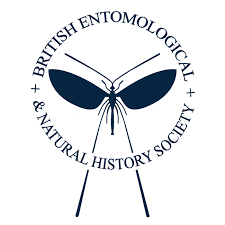Ian Wallace, Ivan Wright and Colin Pratt
Ian Wallace
Ian has been recording caddisflies since the 1970s and began his doctoral research on the group after collecting and naming his first caddisfly at university. In the intervening years he has visited every corner of the UK to make new records of this under-recorded group. Since establishing the Caddisfly Recording Scheme, he has personally amassed over 410,000 records. These days, Ian probably spends as much time helping other people identify caddisflies, especially from photographs, as doing his own recording. Ian was named winner of the 2019 National Biodiversity Network Award for Terrestrial Wildlife and his efforts to create so many records of caddisflies means that they are no longer classified as a seriously under-recorded group. He believes that “Every record advances our knowledge of a species’ biology and thus is a little bit of science in action” and this underpins his efforts to improve identification resources. Ian was a senior curator at National Museums Liverpool for over 40 years and is currently an Honorary Curator there and an Honorary Fellow of the Freshwater Biological Association. His enthusiasm is infectious, his entomological knowledge and field skills are outstanding and he cares deeply about his field.
Ivan Wright
Ivan is a local Oxfordshire entomologist who has helped set the Shotover Wildlife Trust on its feet, petitioning for its status and recognition tirelessly. He has been working with the Trust for over 20 years and has been a key member, documenting Shotover’s species and history, raising awareness of the area’s importance as a wildlife refuge, and vocally advocating for its protection through local council measures. Ivan specialises in Hymenoptera, one of the largest orders of insects including many species of bees, wasps, hornets, and ants, and has worked on this British fauna for over 20 years. He has actively supported and trained numerous students through a variety of outlets from Open University Continuing Education courses to local general public events around the city and is always willing to give generously of his time. Ivan co-authored the book Shotover: The Life of an Oxfordshire Hill which was published in 2018 and summarises two decades of recording and research across Shotover’s rich variety of habitats as a lasting tribute to the hard work of a team of specialists working for the sheer love of their subject.
Colin Pratt
Colin has been the Lepidoptera Recorder for East and West Sussex for 47 years. He started collecting records for Sussex in 1975 and became de facto County Recorder at that time, sending out blank species lists for butterfly enthusiasts to fill out. Following the publication of his book, History of the Butterflies and Moths of Sussex, in 1981, Colin went on to research, write, produce and self-publish A Complete History of the Butterflies and Moths of Sussex, a monumental series of 4 volumes, unmatched in scope and content and entirely self-funded. Not one to rest on his laurels, Colin is currently researching and writing A Revised History of the Butterflies and Moths of Sussex, of which he has published 3 of the 5 volumes. This is a well-illustrated and produced series, rich with colourful and detailed specimens. In addition to extremely detailed reviews of each species, Colin provides an overall analysis of the results, highlighting the most important locations for these species, the history of the species and requirements for surveying key sites. Approximately 3,000 references are included in this series, making it an outstanding effort and example of commitment to lepidoptera recording. Colin’s contribution to the knowledge and understanding of the lepidoptera of Sussex is immense and his books provide an unrivalled resource for all of those seeking data on this group of insects. He is a true ‘unsung hero’ in the world of entomology.








